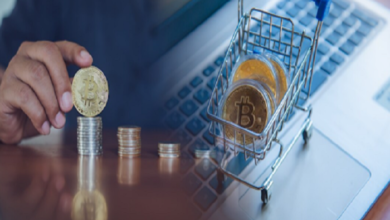Crypto Scam: Protecting Yourself from Online Fraud
Cryptocurrency has gained significant popularity in recent years, attracting both seasoned investors and newcomers to the digital financial landscape. However, with the rise of cryptocurrencies, the risk of crypto scams has also increased. This article aims to provide you with essential information and actionable tips to safeguard yourself against crypto scams. By understanding the tactics employed by scammers and adopting preventive measures, you can protect your investments and engage in the cryptocurrency market with confidence.
Understanding Crypto Scams
Ponzi Schemes
Ponzi schemes are one of the most prevalent types of crypto scams. In a Ponzi scheme, scammers promise high returns on investments by using funds from new investors to pay existing ones. However, these schemes eventually collapse, leaving investors with substantial losses.
Fake Initial Coin Offerings (ICOs)
Fake ICOs attract investors by offering new cryptocurrencies at discounted rates or with enticing bonuses. Scammers behind these schemes collect funds from investors but never deliver the promised tokens. It is crucial to conduct thorough research before participating in any ICO to avoid falling victim to such scams.
Phishing Attacks
Phishing attacks involve scammers posing as legitimate individuals or organizations and tricking victims into revealing sensitive information like passwords or private keys. They often use deceptive emails, websites, or social engineering techniques to gain access to users’ cryptocurrency wallets and steal their funds.
Pump and Dump Schemes
Pump and dump schemes involve artificially inflating the price of a particular cryptocurrency through false or exaggerated claims. Once the price reaches a peak, scammers sell their holdings, causing the price to crash. Unsuspecting investors who bought the cryptocurrency during the pump phase experience significant losses.
Recognizing Red Flags
Promises of High Returns
Be wary of investments that promise exorbitant returns with little to no risk. If an opportunity sounds too good to be true, it likely is. Legitimate investments involve risks, and high returns are generally achieved over the long term.
Lack of Regulatory Compliance
Legitimate cryptocurrency projects comply with relevant regulations and operate within legal frameworks. If a project lacks transparency or fails to provide information about regulatory compliance, it raises a red flag and indicates potential fraudulent activity.
Unsolicited Investment Opportunities
Be cautious of unsolicited messages or phone calls offering investment opportunities in cryptocurrencies. Legitimate investment opportunities are typically researched and sought out by the investor rather than presented out of the blue.
Pressure Tactics
Scammers often use pressure tactics to rush investors into making quick decisions. They create a sense of urgency by emphasizing limited-time offers or exclusive opportunities. Take your time to evaluate investment opportunities and avoid making impulsive decisions.
Protecting Yourself
Conduct Thorough Research
Before investing in any cryptocurrency or participating in a project, conduct comprehensive research. Analyze the team behind the project, read the whitepaper, and assess the project’s viability and long-term prospects. Look for reviews and feedback from reputable sources to gain insights into the project’s legitimacy.
Verify the Legitimacy of Cryptocurrency Projects
Ensure that cryptocurrency projects are legitimate by checking their registration status, company details, and team members’ credentials. Look for information about partnerships, endorsements, and audits, which can help establish the project’s credibility.
Use Secure Wallets and Exchanges
Utilize reputable and secure cryptocurrency wallets and exchanges for storing and trading your digital assets. Research and choose platforms with robust security measures, such as cold storage, two-factor authentication, and encryption, to safeguard your funds.
Be Cautious of Suspicious Links and Emails
Exercise caution when clicking on links or opening emails related to cryptocurrencies. Scammers often send phishing emails that mimic legitimate websites, wallets, or exchanges. Verify the authenticity of the sender and avoid sharing any personal or financial information through unsecured channels.
Enable Two-Factor Authentication (2FA)
Protect your accounts by enabling two-factor authentication wherever possible. 2FA adds an extra layer of security by requiring a second form of verification, such as a unique code sent to your mobile device, in addition to your password.
Reporting Scams
Contact Law Enforcement
If you have fallen victim to a crypto scam, report the incident to your local law enforcement agency. Provide them with all relevant information and any evidence you have regarding the scam. This helps authorities investigate the matter and take appropriate legal action.
Report to Financial Regulatory Bodies
Inform financial regulatory bodies such as the Securities and Exchange Commission (SEC) or the Financial Conduct Authority (FCA) about the scam. Reporting such incidents can help protect others from falling into the same trap and assist in strengthening regulations to combat crypto scams.
Share Your Experience with the Crypto Community
Spread awareness within the crypto community by sharing your experience on reputable forums, social media platforms, or dedicated cryptocurrency communities. By sharing information about scams, you can help others recognize and avoid similar fraudulent activities.
Conclusion
In the dynamic world of cryptocurrencies, it is crucial to remain vigilant and informed to protect yourself from scams. By understanding common scam tactics, recognizing red flags, and adopting preventive measures, you can minimize the risk of falling victim to crypto scams. Remember to conduct thorough research, verify the legitimacy of projects, use secure wallets and exchanges, and report any scams you encounter. Stay proactive, stay informed, and safeguard your investments in the exciting realm of cryptocurrencies.





